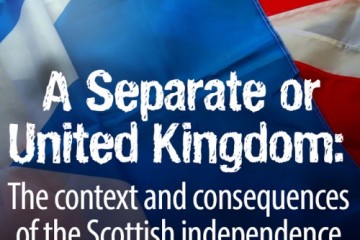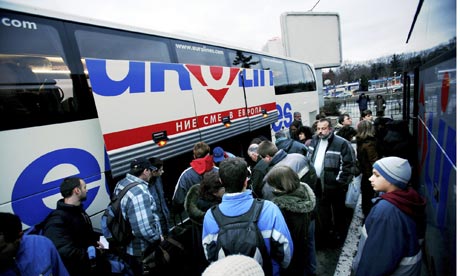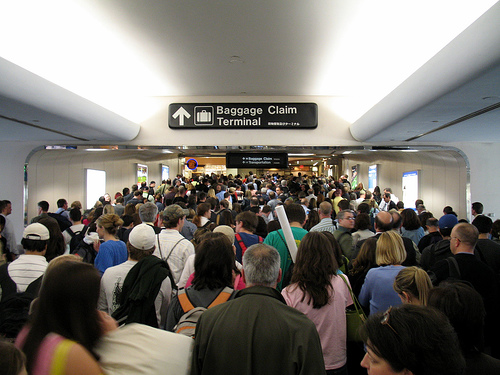
Migration and Citizenship in an Independent Scotland
When the Scottish government released its White Paper outlining what an independent Scotland might look like, migration policy was a small but essential element of it.
The White Paper promises a change in the direction of travel in migration policy for an independent Scotland. In recent years the UK has enacted a number of measures restricting various migration flows, and the present government aims to reduce net migration – the difference between immigration and emigration – below 100,000 annually. The White Paper outlines a vision for a set of migration policies that encourage skilled migrants to come to and remain in Scotland, in order to meet different demographic and economic objectives, which it explicitly contrasts with the present ‘Westminster approach’.

How many Bulgarians and Romanians will come to the UK? Estimating migration is hard, but the lifting of restrictions on ‘A2’ nationals is unlikely to have the impact of the 2004 enlargement
On 1 January 2014 British labour markets will be open to Romanian and Bulgarian nationals (the “A2”) as they are to people from the rest of the EU. Many are wondering what the effects will be – although some impacts of Romanian and Bulgarian free movement have already happened, with an estimated 100,000 to 150,000 people born in the A2 currently living in Britain.
Still, the lifting of restrictions creates an expectation of increasing rates of immigration. Over the weekend Eric Pickles claimed to have seen estimates of how many Romanians and Bulgarians might arrive – though he would not reveal what the estimates were – and worried about pressure on the UK’s housing market. Other prominent politicians, including Theresa May and Ed Miliband, have raised concerns that increased migration may reduce wages, especially for the lowest earners.

Does Miliband say anything new about immigration?
Over a month ago, Labour leader Ed Miliband gave a much-trailed “major” public address on the topic of immigration. After Labour had largely remained quiet about the issue in the first two years of the Coalition government, Miliband touted his speech as the first step in a new conversation, and offered extensive apologies about Labour’s past policies on immigration in a bid to begin to rehabilitate Labour’s public image in this policy area. The apologies seemed to attract most of the headlines. Commentary from the political right welcomed this admission either wholeheartedly or with considerable scepticism (Daily Mail headline: “…What Sick Hypocrisy”). Commentators on the political left argued that Miliband should not have apologised for Labour’s record, disputed his claim …

Why is it so Hard to Reduce Net Migration to the UK?
David Cameron took office having pledged during his campaign to reduce net migration to the “tens of thousands rather than hundreds of thousands,” a commitment that has been reiterated numerous times since then by Cameron and other Conservative ministers (although it is technically a Conservative party goal rather than a coalition government policy). But reducing migration appears much easier said than done. The coalition government has put forward policies designed to reduce net migration through limitations on international students and skilled labour migrants. It has opened a consultation on policy toward settlement—the granting of indefinite leave to remain in the UK, as opposed to mere temporary resident status—and it plans to address marriage- or family-related migration soon. My colleagues at …










